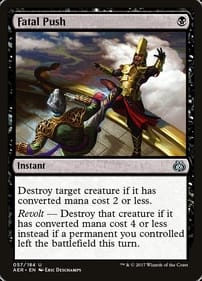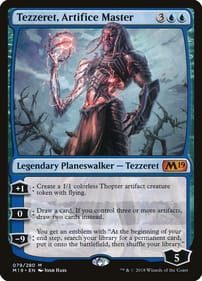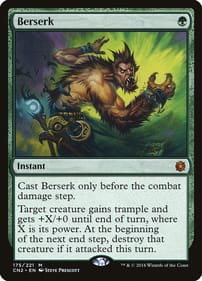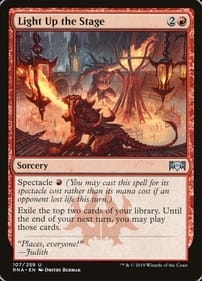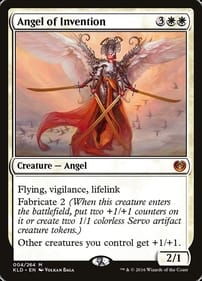Always wanted to play the Pokemon TCG but never known how? This article will give you a quick run-down about everything you need to know to get into the game. This is just an introduction, so for more detailed rules or rulings on specific cards, please contact your local judge.
How do I win?
There are 3 basic ways to win, called win conditions. These are:
- Taking all your prize cards
- Your opponent having no pokemon on their field
- Your opponent not being able to draw a card at the start of their turn
If at any point, any of these conditions are met, you win the game. By far the most common way to win is to take all your prize cards, but there are certain decks that try to win using one of the other 2 ways. Also from time to time, there are cards that have their own win conditions printed on them (for example, lost world) but these are very rare so don't worry yourself with these.
What do I do during my turn?
The first thing you do each turn is draw a card. After you have done this, you may do any of the following things:
- Play down pokemon to the bench (as many times as you can per turn)
- Evolve pokemon that are already on the bench (as long as you didn't put them down that turn) (as many as you can per turn)
- Play item cards (as many as you want per turn)
- Use abilities of Pokemon (as many times as you like, UNLESS the ability states it can only be used once per turn)
- Play stadium cards (once per turn)
- Attach an energy (once per turn)
- Retreat (once per turn)
- Use a supporter cards (once per turn)
To end your turn, you either declare an attack (if you have enough energy) or pass your turn. When you declare an attack, your turn ends and you cannot do anything else until your next turn, so you need to do everything to set yourself up for an attack or for next turn before you declare an attack.
Please note that you can do some of the above things more than once if you have an ability or trainer that says you can. For example, if you play a switch card, this doesn't count as your retreat for the turn as it is a trainer card effect, you're not using your retreat. Or if one of your pokemon has an ability that lets you attach multiple energy per turn (such as bronzong), you can attach more than 1, but you must state that you're using the ability for the additional attachments.
So how do I take prize cards?
Each time one of your opponents pokemon is knocked out, you get to draw a prize card. Some cards, such as Pokemon EX, let you take 2 prize cards when they're knocked out. It says this on the card, so make sure you read them carefully. Once you've taken all of your prize cards, you win!

So what do those different cards do?
- Energies are what your pokemon need to attack
- Items help you search for certain cards or draw more cards
- Supporters are stronger item cards, so they're limited to 1 per turn
- Stadium cards sit between you and your opponents cards, both players can use the effect of the card
How do we set up a game?
Before the game starts, decide who is going first. You can do this by flipping a coin, playing paper, scissors, rock; or by any other random method.
Firstly, shuffle your deck and allow your opponent to "cut" your deck. This means that they take a handful of cards and put them on the bottom of your deck. This helps to avoid cheating. It's essential to let your opponent "cut" after every time you've shuffled your deck.
Then, draw 7 cards. Look at your hand. If you have a basic pokemon, place it in the "active" position, face down so your opponent doesn't know what it is. Have a look at the photo below to see where this is if you're not sure. Your active pokemon is the one that takes damage from your opponents attacks and is the one that attacks your opponent.

If you have more basic pokemon, you may put them on your bench if you want to. Basic pokemon are like the pokemon that are still in pokeballs in the game. They're on your team but they're not attacking. You can still use abilities of pokemon on the bench and you can attach energies to them so they can attack when your active is knocked out.
If you didn't get any basic pokemon, show your opponent your hand (the 7 cards you drew.) (This is so they know you're not cheating), then shuffle your hand back into your deck and draw another 7. Do this until you draw a basic. Each time this happens, your opponent can choose to draw an extra card.
Once both players have a face-down active pokemon, place your prize cards down (6 in a normal game) and flip over your pokemon. The game then starts and the person who goes first can do all the things listed above. Please note: the person who goes first cannot attack on their first turn.

How do I know when something is knocked out?
You'll see that each pokemon has HP, this stands for hit points. When they have damage on them equal to or greater than that number, they are knocked out. Each attack does damage, which is written on the card. This damage stays on the pokemon, even if it is no longer the active, unless you can heal it with a card.

So how do I evolve my pokemon so they're stronger?
If the pokemon has been down for at least one turn, you can evolve it once. So if you have a pikachu that has been down for a full turn, you can put a raichu on it. Simply place the pokemon over the other pokemon. It now becomes this pokemon and can no longer use the attacks of the other one. Don't worry though, it's usually a lot stronger once it's been evolved. Cards say on them what cards they evolve form, if you don't know.

What happens if I don't want to attack with the active any more?
If you think your active pokemon is going to get knocked out soon, or you just have a better one ready on the bench, you can retreat your active pokemon to the bench and send out a different one. Each card has a different cost to retreat. So if you look at the card below, you can see that it costs 1 "star" to retreat. This "star" stands for 1 energy. This can be any type of energy, but you must discard one energy to retreat. Once you have retreated, you must send out another pokemon to be the active.

How do I attack to knock out my opponents pokemon?
So as I've already said, each attack requires energy to use. The cost of each attack is located next to it's name. As I've said above, a white star can be any energy, it doesn't matter what type it is. So if you look at the pikachu above, if you want to use the attack "nuzzle", if you have any energy attached to it, you can use that attack. Other pokemon require specific energy. If we look at noivern, below, it's attack requires one dark, one psychic and one colourless "star" energy (which can be any energy). So, for example, if you attached 2 dark energy and one psychic, you could use this attack. As you'll see, each energy card has the symbol in the top corner, so you can easily see if you have the right energy.
When you attach an energy to your pokemon (remember, you can only do this once per turn), place it behind the pokemon so it is obvious which one it is attached to.
If you have enough energy to use an attack, just say its name and use the attack! Some attacks also have conditions, which are in the text below the name. If you look at noivern, it has an effect. So make sure you do that effect of the attack as well!



My attack says the other pokemon is poisoned / burned / confused / paralysed / asleep. What does this mean?
These are called status conditions and affect the pokemon in different ways, just like in the video game. Below is what each of these does.
- Sleep: Turn your pokemon sideways. Between turns, flip a coin. If heads, you're awake and nothing else happens. If tails, you stay sleep and you cannot attack or retreat that turn.
- Confusion: Turn your pokemon upside-down. Before you attack, flip a coin. If heads, the attack goes on like normal. If tails place 30 damage on your pokemon. You can still retreat while confused.
- Paralysis: Turn your pokemon sideways. For one turn, you cannot attack or retreat. Paralysis is healed at the end of your turn.
- Burn: Put a burn counter on your pokemon. Between turns, flip a coin. If heads, nothing happens. If tails, place 20 damage on your pokemon. You can still attack and retreat while burned.
- Poison: Put a poison counter on your Pokemon. Between turns, take 10 damage. You can still attack and retreat while poisoned.
A pokemon can be affected by only one of the first 3 conditions (sleep, confusion or paralysis) as well as either / both burn and poison.
Between turns just means that it happens after your opponent attacks but before you draw. You must do that action between each turn (both yours and your opponents).
All status conditions are healed if your pokemon retreats to the bench, or if your pokemon evolves. Pokemon on the bench cannot be affected by special conditions.
Posion and burn counters come in every theme deck, or you can just use a piece of paper that says "posion" or "burn"
What can I have in my deck?
If you're playing at home, you can have any 60 cards in your deck, but no more than 4 cards with the same name (so you can only have 4 pikachu, even if they're different pikchus). Just for your information, an EX is a different card name than a non-EX, so you may run 4 charizards and 4 charizard EX if you wanted.
If you're playing in a tournament, only certain sets are allowed. This is to make sure that old cards effects don't make cards have an effect that is impossible to get over. Please feel free to message us on facebook or comment below if you'd like to know which sets are currently legal.
If you don't know what a set is, it's just a bunch of cards that come in the same booster pack. For example, furious fists is a set of cards.
Is that everything?
That's pretty much everything. This may seem like a lot, but don't worry, once you get playing a few games, it will be very easy! You can also purchase theme decks which have a guide in them to help you start playing. This is the easiest way to get going.
If you have any more questions, please feel free to comment below and our staff will help you out as much as they can.
Don't know what some of these terms mean? Check out our glossary here.


